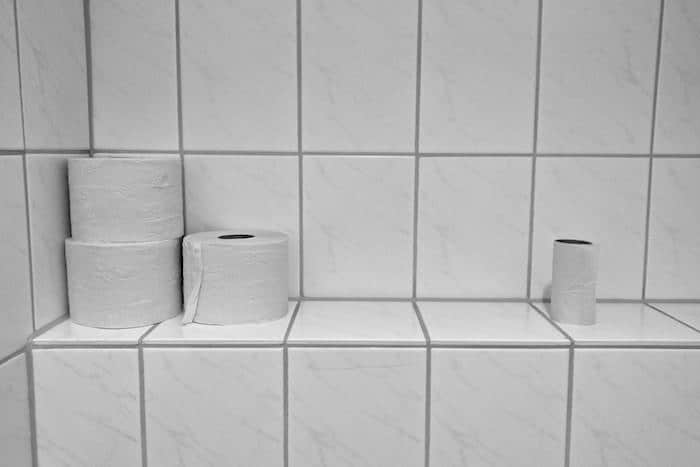Do you suffer from recurring bouts of constipation? Our caring providers at Prima Medicine in Fairfax and South Riding, Virginia, want to help you find relief from the discomfort and pain that chronic constipation can bring.
If you’re struggling to move your bowels and pass stools, it’s important to seek medical care to rule out possible underlying causes and get the help you need. We’ve put together this informative article to help you better understand chronic constipation.
What is constipation?
Constipation is classified as having fewer than three bowel movements each week. Because stool becomes harder to pass when you don’t move your bowels often, constipation can cause discomfort and pain.
Most people experience short-term or acute constipation at least a few times in their life. Acute constipation resolves in a few days and is usually brought on by a change in diet or daily routine, medication, travel, or lack of exercise. You can alleviate short-term constipation fairly quickly by increasing fiber intake, taking an over-the-counter laxative, and exercising.
Chronic constipation, on the other hand, occurs when a person has lasting or recurring bouts of constipation for more than three months. Some people have chronic constipation for years. With chronic constipation, traditional remedies, such as changes to diet or physical activity, may not provide relief.
What causes chronic constipation?
The cause of chronic constipation can vary. Below are some of the things that can contribute to chronic constipation:
Health conditions
Some health conditions — such as bowel stricture, mental health disorders, bowel diseases, neurological conditions, endocrine or metabolic disorders, and pelvic floor dysfunction — can lead to chronic constipation.
Medications
Medications and supplements — both over-the-counter and prescription — can lead to the condition. Some of the substances that can contribute to chronic constipation include opiates, iron supplements, antacids, antihistamines, calcium supplements, and antipsychotics.
Risk factors
Some people have a higher risk of developing chronic constipation, including:
- All females
- People age 65 and over
- People who have sedentary lifestyles
- People confined to bed due to medical or physical disabilities
- Pregnant women
Can chronic constipation be treated?
Chronic constipation can be frustrating, but there are things you can do to find relief from your condition. Here are some tips for managing chronic constipation:
Fiber, fiber, fiber
If you have chronic constipation, it’s important to consume high quantities of fiber regularly. It’s not enough to take fiber supplements only when you’re constipated. Instead, work to eat a high-fiber diet every day and take supplements, such as psyllium, if recommended by your doctor.
The best sources of fiber include fruits, vegetables, grains, nuts, and seeds, such as the following:
- Pears
- Berries
- Apples
- Broccoli
- Brussels sprouts
- Legumes
- Beans
- Oats
- Whole, unprocessed grains, nuts, and seeds
Plan your meals around plant-based sources of foods and reduce your consumption of low-fiber foods, such as meat, eggs, and dairy.
Get plenty of water
Drinking plenty of liquids, especially water, is essential for sufferers of chronic constipation. Try to drink at least eight glasses of water a day, and avoid beverages that contain dairy or alcohol, as they can make constipation worse.
Keep moving
Exercising regularly helps food pass through your large intestine. Regular physical activity can also help reduce your stress levels, which is important, since stress can make passing stools more difficult. Aim to get regular exercise every day.
Make regular bathroom visits
Encourage your body to become more regular by visiting the bathroom at around the same time each day. Colonic activity is highest in the morning, so try going to the bathroom each morning at the same time.
Avoid relying on over-the-counter laxatives
Becoming reliant on over-the-counter laxatives can actually increase your risk for chronic constipation. When used over time, laxatives can cause nerve damage in your colon and interfere with the muscle contractions needed to empty your bowels. What’s more? Habitual laxative use can be habit-forming, meaning you may feel like you need to use them before you can go to the bathroom.
When should I seek help for constipation?
If you experience frequent constipation, or if your constipation doesn’t resolve, it’s essential to seek help from a trained medical professional. At Prima Medicine, our team members are experts at treating constipation and helping our patients manage chronic constipation.
Your provider may recommend at-home treatment options in addition to medications and laxatives for mild to moderate constipation. Other interventions may be necessary for severe constipation. If left untreated, constipation can cause uncomfortable and problematic side effects.
To find relief from chronic constipation, book an appointment online or over the phone with Prima Medicine today. We also offer telehealth appointments, so you can meet with your provider from the comfort of your home.






